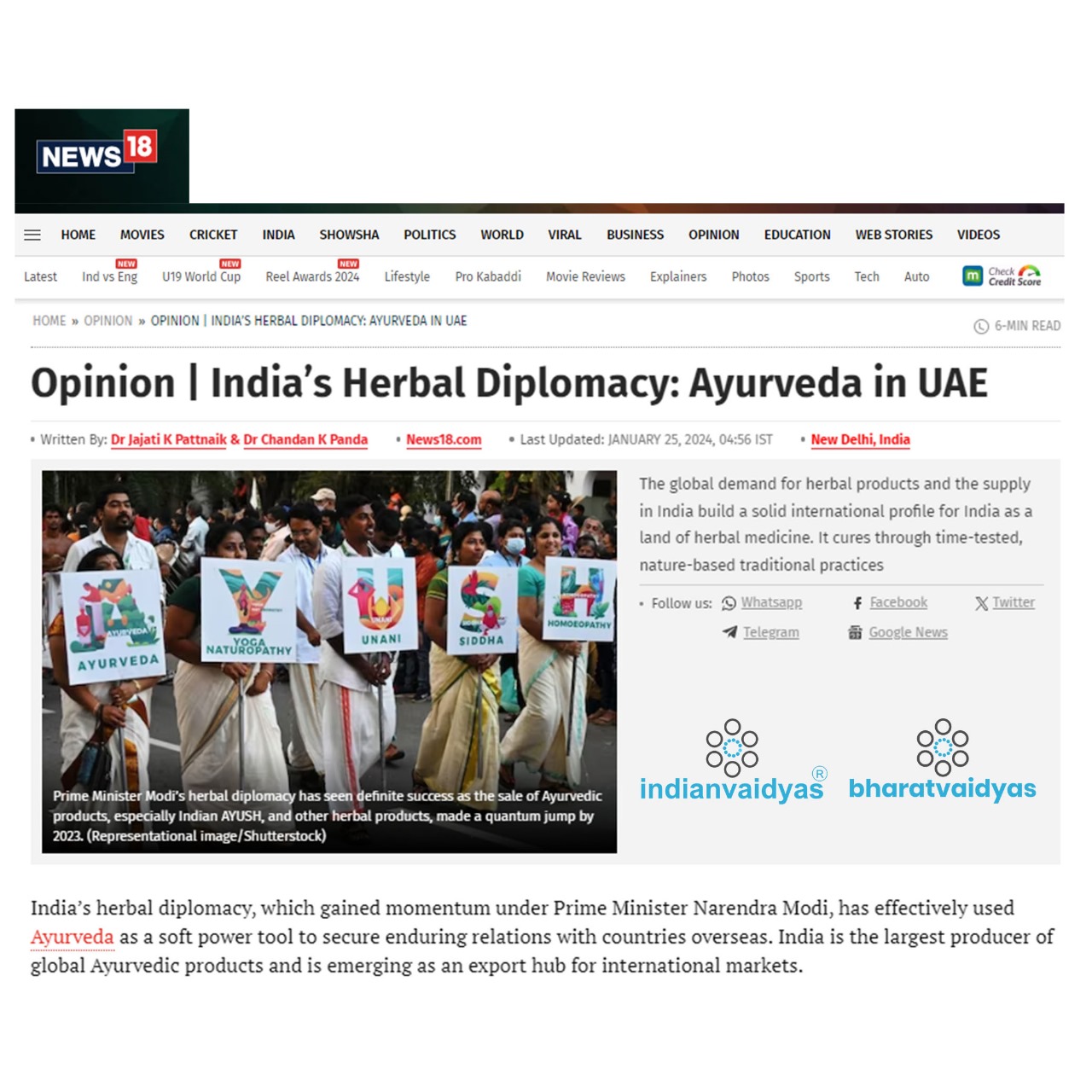Opinion | IndiaÔÇÖs Herbal Diplomacy: Ayurveda in UAE
25-Jan-24 05:03:39

India’s herbal diplomacy, which gained momentum under Prime Minister Narendra Modi, has effectively used Ayurveda as a soft power tool to secure enduring relations with countries overseas. India is the largest producer of global Ayurvedic products and is emerging as an export hub for international markets.
The country’s ancient medicinal wisdom, unparalleled in the history of age-old knowledge systems, has become the new therapeutic model, augmenting the scope for alternative medicines in the global healthcare system. The Charaka Samhita, a Sanskrit text of Indian medicine that was translated into Arabic in the eighth century, has resurfaced as ‘Rising Ayurveda’ in the medicinal space of the Gulf countries as a holistic wellness and sustained therapy to overcome the impending healthcare challenges. Moreover, a significant presence of Ayurvedic companies and burgeoning demand for such products in the UAE entails India’s robust herbal diplomacy with the Emirates.
The word Ayurveda etymologically means ‘knowledge of life’. This compound Sanskrit word is composed of two words, ‘Ayur’ meaning ‘life’ and ‘Veda’ denoting ‘knowledge’. This medicinal tradition, mainly based on herbal compounds, is a gift of Bharat to the world. It gives a comprehensive cure with non-chemical intervention. Its healing involves physical, mental, and spiritual well-being. The great Indian antiquity enjoyed a special status in Asia, Africa, and Europe for exploring remedies to human pathology in the world of nature. Its historicity began at least three thousand years ago or way above the projected temporality.
The continuity of this chemical-free, organic, and sacred medicinal tradition experienced neglect during the colonial introduction of modern medicine. Allopathic medicine and its chemical content have indubitably made significant progress as modern medicine but carry no permanent cure and is clueless for several diseases. The lifestyle change, high consumption of junk and other unhealthy food without any regulative restriction, and sedentary culture in the workspace have given rise to strange ailments that find no effective cure in the chemically reliant medicinal system.
This has shifted the global attention to the alternative modes of cure. They include Ayurveda, Yoga and Naturopathy, Unani, Siddha, and Homeopathy (AYUSH). This shift in attention does not mean the end of chemically reliant modern medicine. It means relying on other modes of cure and remaining healthy. In this context, the UAE has made significant efforts to attract alternative modes of cure. It has issued a professional licence to give clearances to Traditional, Complementary, and Alternative Medicine (TCAM). India’s traditional medicinal practices of Ayurveda have greatly interested the Emiratis. Its effectiveness in curing diseases has enhanced its popularity.
SOURCE & CREDIT: NEWS 18